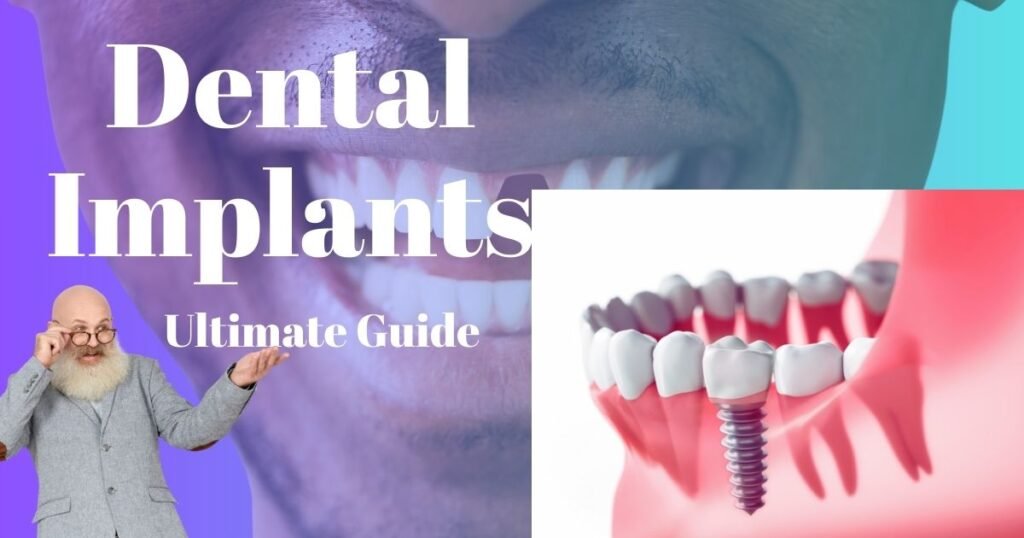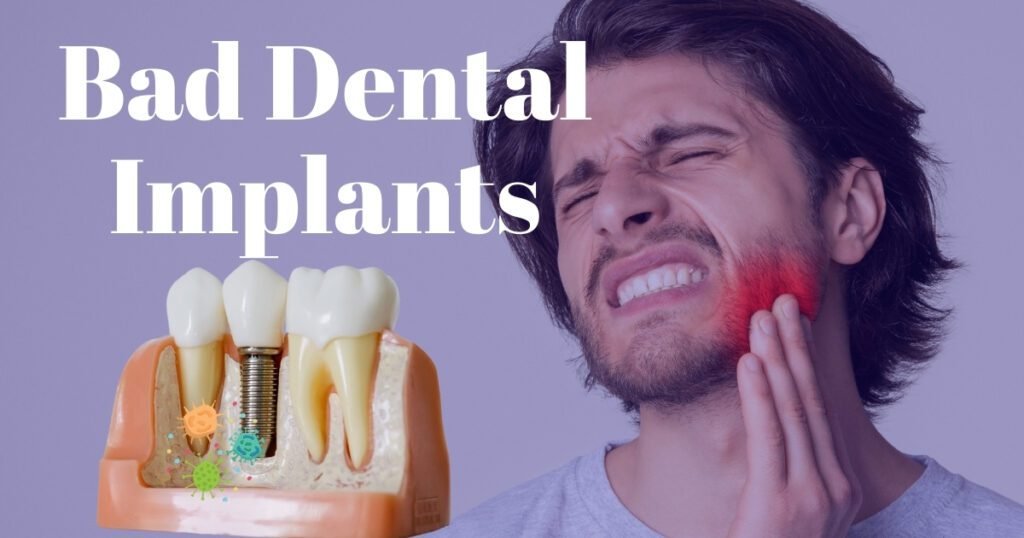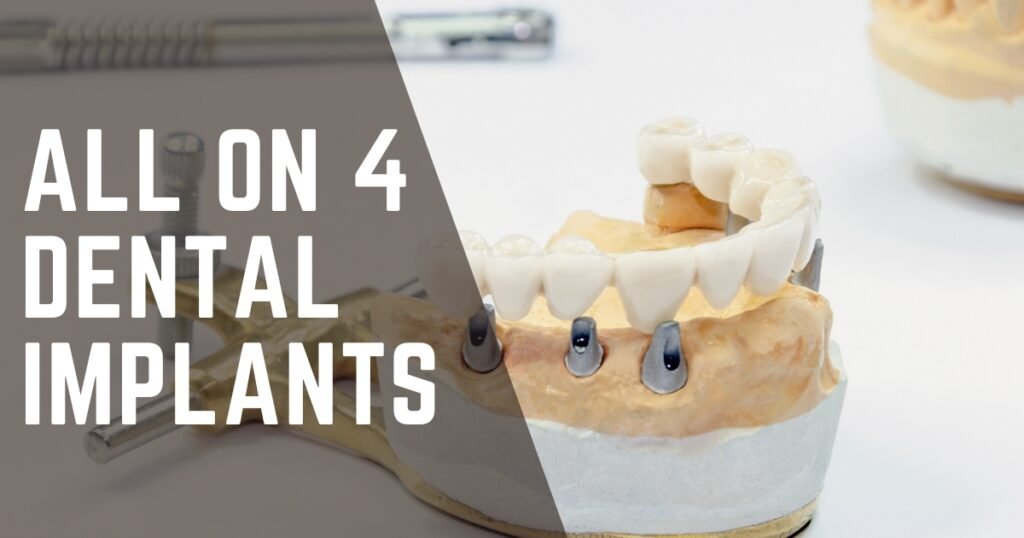Dental implants are a well-accepted and very successful option for tooth replacement, however, they are also expensive and unaffordable for many. Implants are often partially covered by dental insurance, and health insurance can cover implants in some cases. Knowing the ins and outs of these scenarios and being able to navigate the insurance landscape will allow you to take the most advantage of your benefits and minimize out-of-pocket costs.
Want to know how to get dental implants covered by medical insurance? Find out the tips, tricks, and little-known techniques to get the most coverage and save money on your medical bills!
Interactive Tool: Assess Your Chances for Dental Implant Insurance Approval
Dental Implant Insurance Eligibility Checker
Understanding Dental vs. Medical Insurance

Dental insurance exists to address routine dental care, whether it’s the need for cleanings, fillings, and more. Although sometimes with limitations, such as with dental implants for extensive restorations. On the other hand, health insurance, by and large, will only cover health-related issues, while your medical plan may also cover some dental procedures that are considered necessary.
In What Situations Are Dental Implants Covered By Medical Insurance?

Health insurance can pay for dental implants if:
- Accident or Trauma: If you lost teeth in an accident or traumatic injury (such as a car accident), medical insurance may cover the cost of your implants as part of reconstructive surgery.
- Medical Conditions: Some diseases, including oral cancer and/or congenital defects, may require dental implants. In those instances, the insurance company might be able to deem it a medical necessity and thus a covered procedure.
- Surgical Procedures: If a surgical procedure for receiving dental implants is necessary from your general health perspective, your health insurance might pay for it.
How to Get Medical Health Insurance to Pay for Dental Implants

To enhance your chances of medical insurance coverage of dental implants, do the following:
- Talk to Your Healthcare Professionals: Share your dental history and medical history with both your dentist and physician. They may be able to determine whether your need for implants is considered medically necessary.
- Get Complete Documentation: Collect all the pertinent medical records, including X-rays, doctor’s notes, and anything that indicates how your dental care is related to a medical condition or event in your life.
- Pre-Authorization: Submit a request for pre-authorization to your health fund prior to the date of the procedure. This can be helpful as it requires a description of why implants are necessary, and it avoids surprise denials.
- Appeal Denied Claims: If your initial claim is denied, don’t give up! Read that denial letter carefully, write down the reasons given, and file that appeal with evidence.
- Explore Additional Insurance: Check out supplemental insurance options to get more coverage on dental work. This does come with extra premiums, but it spreads the cost of high-cost treatments.
Overcoming Obstacles in Health Insurance

It’s important to recognize that insurance companies often scrutinize claims for dental implants, especially when filed under medical insurance. Some common challenges include:
- Strict Definitions of Medical Necessity: Insurers need to control their costs for medically necessary treatment. Make sure your documentation directly fits these definitions.
- Policy Exclusions: Go through your insurance policy carefully and understand whether it has any dental exclusions. Knowing these can help you make your coverage case stronger.
- Coordination Between Insurers: If you are covered by both dental and medical insurance, have the two work with one another to decide which parts of the procedure each will pay for.
Conclusion

Navigating through the dental implants process is a bit of art, you need pre-thought and proper documentation and communication in time with your dental insurance company. If you can prove that the procedure is medically necessary and know the details of your policy, you can increase your chances of getting coverage and not put the whole bill on your very healthy smile.
15 FAQs on How to Get Dental Implants Covered by Medical Insurance
Can medical insurance cover dental implants?
There are, indeed, cases where health insurance might cover implants due to medical necessity arising from trauma (accident), disease, or even congenital circumstances. But standard dental implant treatments are often not paid for by medical insurance.
What qualifies dental implants as medically necessary?
Dental implants are deemed medically necessary when indicated because of trauma (such as accidents), pathology (e.g., oral cancer, osteoporosis), congenital issues (as in genetic anomalies affecting hypodontia, hypocalcification, or other dental deformities), or due to jaw bone atrophy that negatively affects the ability to function.
Does Medicare cover dental implants?
Dental implants are not covered by original Medicare (Part A and Part B). However, Medicare Advantage plans (Part C) may cover dental implant costs if the procedure is deemed medically necessary. You can ask your plan provider, but the best thing to do is to check with your particular plan.
How can I prove that dental implants are medically necessary?
You need comprehensive documentation from your dentist and your doctor, including X-rays, a medical history, an accident report, and a written statement about why implants are necessary for your health.
Will my insurance cover bone grafting for dental implants?
Bone grafting may or may not be a covered benefit by medical insurance if necessary due to bone loss or injury, disease or congenital defects. If it is only for implant placement, however, it may not be covered.
What is pre-authorization for dental implants?
Preauthorization is when you get permission from your insurance company before getting the procedure. It lets you know how much of the treatment will be paid for and avoids surprises on denials.
Can I appeal a denied claim for dental implant coverage?
Yes. If the claim is denied, you are allowed to appeal with more medical records, letters from medical professionals, and any other supporting documentation you have that shows that the surgery is medically necessary.
How much of the cost will medical insurance cover for dental implants?
The coverage is a benefit that varies by plan. The surgery, as well as the anesthesia, may be covered by some policies, and some policies may also cover you for hospital expenses. You may still be responsible for out-of-pocket costs.
Will private health insurance plans cover dental implants?
Certain private health insurance plans may cover dental implants when they are medically necessary. But most policies do not cover implants unless they are related to a covered medical condition.
Can I get dental implants covered after a workplace accident?
Yes. If you lost teeth because of a work accident, dental implants can be covered by workers’ compensation or your employer-provided medical insurance.
Does Medicaid cover dental implants?
The availability of dental implants through Medicaid depends on the state. In some states, it is possible to get coverage for surgically implanted devices that may be medically necessary, and in other states, surgically implanted devices are not covered at all. Please contact your state Medicaid office for additional information.
Can I use both dental and medical insurance for implants?
Yes, you may be able to use both. Medical insurance could possibly cover the surgery, and dental insurance may provide benefits toward the prosthetic (the implant crown).
Do veterans have coverage for dental implants?
Yes. Veterans with a Service-Connected Dental Injury or Condition: Veterans may be eligible for free or reduced-cost dental implants through the VA dental program if they have a service-related dental injury or condition.
How do I find an insurance plan that covers dental implants?
Search for full coverage dental insurance or health insurance with oral surgery coverage. Certain insurers sell plans that cover implants as a supplemental dental plan.
Are there alternative financing options if my insurance doesn’t cover implants?
Yes. You might also look into dental discount plans, payment plans from your dentist, health savings accounts (HSA), flexible spending accounts (FSA), and medical credit solutions like CareCredit to help control the cost.

Dr. Niraj Ghanghoriya is a passionate dental surgeon with over 12 years of experience in clinical dentistry. He completed his BDS from the prestigious Sri Aurobindo Institute of Dentistry in 2012 and specializes in painless root canals, smile makeovers, and preventive oral care. He is the Founder of ToothCareUSA.com and a registered Dental Surgeon (Reg No: A-03649) based in Indore. Known for his patient-first approach and clear communication, Dr. Ghanghoriya aims to make dental knowledge accessible to everyone. When he’s not in the clinic, he enjoys writing informative dental blogs to help people take better care of their oral health. He reviews every article on this site to ensure medical accuracy and patient safety.





